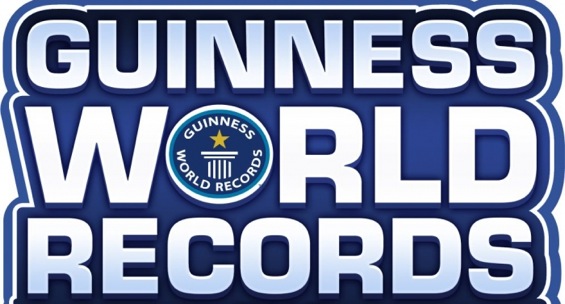
We have to admit: some of the records in the Guinness Book of Records, first published in 1955, are impressive, extraordinary and amazing; others might be classified more as interesting, crazy or irrelevant. Consider some of the records in this great and worthy tome: many of us may not be aware that someone holds the world record for putting the most socks on a foot in a minute! We can find out, if we are so inclined, the apparently all-important record for being the oldest criminal gang or the fastest one hundred metres on a skateboard by a dog. We can learn that the Arizona Cardinals cornerback Patrick Peterson holds the record for taking the most “selfies” taken in an hour though it is likely there are many youngsters in Zimbabwe who would love to challenge that.
By Tim Middleton
We might also be intrigued to know who holds the most records in the Guinness Book of World Records and we can find the answer to that there as well (no surprise). Ashrita Furman has set more than 600 official Guinness Records, having started breaking them in 1979 and being the first person to hold more than 100 records at the same time. His feats are varied as well as valued — he holds the record for “gluggling” (underwater juggling, for the uninitiated!) which he did for 48 minutes, for the fastest time to run a mile while balancing a milk bottle on the head, for balancing on a Swiss ball (2 hours 16 minutes and two seconds) to name just a few.
We will no doubt be encouraged and excited that Zimbabwe does indeed feature in these records. The pupils of St. Johns Preparatory School hold the record for the largest game of “pick-up” sticks, while the greatest number of bee stings sustained by any surviving human subject is 2 443 by Johannes Relleke at the Kamativi tin mine, Gwaii River, Hwange District (it is noted that all the stings were removed and counted). Equally it will not surprise us that Zimbabwe holds the record for the highest denomination note and the highest inflation rate.
Reading of these people who have set such records makes us see they are quite extraordinary people who have incredible talent in areas where we may not have seen talent before. What do we make of them? Are they, in fact, geniuses? What do we think of when we hear the word “genius”? We probably will think of Einstein, but who else would qualify? Stephen Hawking? Leonardo Da Vinci? Mozart? Anyone else? What will qualify us for genius-hood? Is it measured by our IQ? Is it just a matter of being clever? Or do we consider Ashrita Furman a genius because he can do so much that the rest of mankind cannot do? A typical definition of genius puts it as “an exceptionally intelligent person or one with exceptional skill in a particular area of activity”. By that definition, all the holders of Guinness records are geniuses — they are the exceptions in different particular areas of activities. The Guinness Book of Records should in fact be the Genius Book of Records.
Parents will no doubt take enormous delight and pride if their child is described as a genius, but perhaps we should look at school records as we might look at the Guinness Book of Records. Too often in schools we refer to a child with great academic ability as a genius, but do not give the same accolade to a child with exceptional social empathy or strong moral fibre. We look down on pupils studying commercial or technical courses, though the ones doing them show exceptional ability and talent in them. If all those in the Guinness Book of Records are geniuses, for doing all sorts of different, even obscure activities, then our schools are full of geniuses.
However, the important point we should not ignore or forget is the simple fact that holding a Guinness Record or indeed being a genius does not and will not guarantee that we get a job (except perhaps in research into that area). Putting on an enormous amount of socks in a minute may be impressive, but such talent is not really needed in many professions. Balancing on a Swiss ball for over two hours may be nothing in comparison to balancing the demands of being a father and an employee. An ability to play “keepie-uppie” with a soccer ball may not necessarily lead to a contract with a professional soccer team. A man with six degrees may not be able to teach. Would Mozart have been given a job as an accountant? Let us develop each child’s particular skill.
In the meantime, we can raise a glass (of Guinness perhaps) and drink to the geniuses — cheers!
- Chamisa under fire over US$120K donation
- Mavhunga puts DeMbare into Chibuku quarterfinals
- Pension funds bet on Cabora Bassa oilfields
- Councils defy govt fire tender directive
Keep Reading
lTim Middleton is the executive director of the Association of Trust Schools [ATS]. The views expressed in this article, however, are solely those of the author in his private capacity and do not necessarily represent the views of the ATS.
email: [email protected]
website: www.atschisz.co.zw











